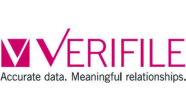Policy Positions
PBSA has developed policy positions on each of the following areas impacting PBSA members. PBSA members CLICK HERE for the full policy positions document.
See also:
Canada Position Statements: Data Privacy & Security and Responsible Use of Criminal Records
Public Access Software Specifications
Members of the public seeking additional information regarding PBSA policy positions can reach out to PBSA Executive Director, Melissa Sorenson.
1. Consumer Reporting
- Make consumer-reporting damages reasonable.
- Clarify public-record vendor status.
- Specify forms of consents.
- Permit reports required by other law.
- Clarify employment-purposes definition.
- Resolve conflicts of law.
- Define "credit report".
- Focus on economic harm.
2. Data Privacy and Security
- Make privacy laws reasonable.
- Avoid new laws overlapping with existing laws.
- Protect free speech about public matters.
- Adopt well-established and consistent approaches.
- Avoid needless litigation.
- Allow deliberate implementation.
3. Access to Public Records & Identifiers
- Permit open access to public records.
- Provide access or transparent matching to identifiers on public records.
- Adopt electronic access to public records.
- Make information readily available about expunged criminal cases, with personally identifying information removed.
- Permit industry to act as designated agents to access specialized record repositories.
- Limit search-depth restrictions in records repositories.
- Avoid fingerprint requirements for name-searched record repositories.
- Limit fees for access to public records to reasonable levels.
- Adopt consistency in how key information is provided in electronic public records.
- Mitigate risks to continuity of public access.
4. Reasonable Alternatives to Mandated Checks
- Allow a CRA-based alternative to fingerprint-based, mandatory criminal history checks.
- Allow county searches as an alternative to mandated statewide searches.
5. Reasonsible Use of Criminal History
- Avoid prohibitions on consideration of relevant criminal history.
- Avoid extensive procedural requirements when using criminal history in decision-making.
- Avoid conflicts between required use and either prohibited reporting or prohibited consideration.
- Enact exemptions to negligent hiring based on reasonable background checks.
- Avoid a patchwork of laws governing decision-making on criminal history.












































































































































